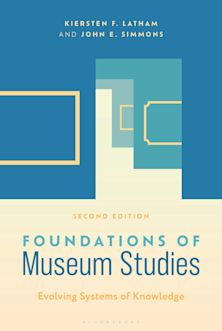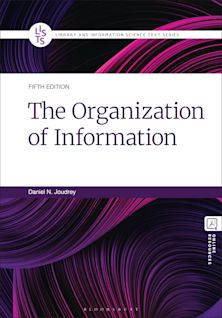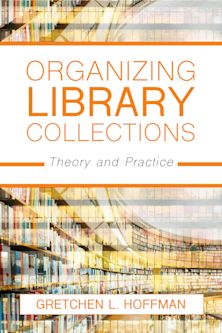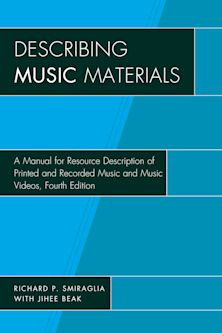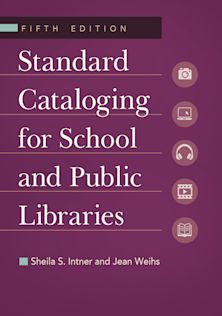- Home
- ACADEMIC
- Library & Information Science
- Cataloging and Classification
- Cataloging Library Resources
Exam copy added to basket
Choose your preferred format. Please note ebook exam copies are fulfilled by VitalSource™.
Buy from Bloomsbury eTextBooks
You are now leaving the Bloomsbury Publishing website. Your eBook purchase will be with our partner https://www.vitalsource.com.
Your credit card statement will show this purchase originating from VitalSource Technologies. They will also provide any technical assistance you might require.
You must sign in to add this item to your wishlist. Please sign in or create an account
Description
While there are many cataloging texts, very few are written specifically for library support staff. This is the one and only book purposefully aligned with the new American Library Association – Library Support Staff Certification (LSSC) competency standards for Cataloging and Classification.
Written in clear language by someone who teaches cataloging in a library support staff program and featuring practical examples, Cataloging Library Resources: An Introduction will help library support staff become effective catalogers. Other books on this topic are written for professional librarians rather than support staff. And although 85% of library support staff do not hold professional degrees, many are expected to do the complex and technical work of catalogers. This book provides many examples that support staff can use to learn how to catalog all types of library print, media, and digital materials using the most up-to-date Library of Congress standards.
Using this handbook as a guide, readers will be able to perform the ALA-LSSC cataloging and classification competencies and the new RDA, FRBR, and BIBFRAME standards listed below:
Apply and manage the appropriate processes, computer technology, and equipment for cataloging and classification.
Apply principles of Resource Description and Access (RDA) and the Functional Requirements for Bibliographic Records (FRBR) when creating cataloging records.
Apply principles of the Bibliographic Framework Initiative (BIBFRAME) and utilize the BIBFRAME model to create cataloging records.
Use the basic cataloging and classification tools, both print and online, including bibliographic utilities and format standards.
Understand the value of authority control and its basic principles, and can identify and apply appropriate access points for personal names, corporate bodies, series, and subjects.
Explain the value and advantages of cooperative or collaborative cataloging practices to enhance services.
Know the basics of standard metadata formats and cataloging rules to select, review, and edit catalog records, and to generate metadata in various formats.
And more!
Table of Contents
List of Tables
Preface
Acknowledgements
PART I FUNDAMENTALS OF THE CATALOGING PROCESS
IntroductionCatalogs, Collaborations, and ToolsAuthority ControlMARC21 RecordsCopy CatalogingMetadata
PART II CLASSIFICATION OF LIBRARY MATERIALS
Dewey Decimal Classification SystemLibrary of Congress Classification SystemClassification: Collections and Subject Headings
PART III CATALOGING LIBRARY MATERIALS
RDA, FRBR, and FRADBIBFRAME: Preparing Catalogers for the FuturePractice Cataloging Library Resources in RDA and MARC21Appendix – Answers to Exercises
Glossary
List of Editorial Advisory Board Members
List of Permissions
Index
Product details
| Published | Jan 26 2017 |
|---|---|
| Format | Ebook (Epub & Mobi) |
| Edition | 1st |
| Extent | 262 |
| ISBN | 9781442274877 |
| Imprint | Rowman & Littlefield Publishers |
| Series | Library Support Staff Handbooks |
| Publisher | Bloomsbury Publishing |
About the contributors
Reviews
-
This revised edition provides functional and realistic examples of cataloging of various library materials like print, electronic, and digital materials through templates and simple examples. Shaw gives a detailed explanation of FRBR (Functional Requirements for Bibliographic Records) and FRAD (Functional Requirements for Authority Data) for library support staff and instructors.
Choice
-
Written with all the library jargon defined and explained, this guide to cataloging contains a wealth of information and practical guidance…. This text would be useful to students in library school or new catalogers in current practice. It would also be helpful to experienced catalogers to bring them up to date or to librarians in settings where they must do their own cataloging from time to time. Recommended.
School Library Connection
-
Cataloging Library Resources is a particularly well-written textbook,addressing all the major catalogingsubtopics insome detail using clear language,and with many useful examples andillustrations…. [A] great deal of excellent information is provided by this textbook, as well as helpful exercises, discussion questions, and activities that a teacher can use to expand on important points being covered. The author's approach is practical and straightforward, and represents a good deal of experience and knowledge.
Technicalities
-
The book does a good job of providing a basic introduction to the various aspects of cataloging and classification. Attention and emphasis is given to the fine line between adhering to written standards and making locally-sensible decisions. The author provides many helpful references and links to additional training and reference materials.
Technical Services Quarterly
-
This is a thorough textbook, structured in a way that will easily provide a great introduction to cataloging. The clear definitions provided and the discussion questions and activities are an added bonus!
Susan Pinkerton, Ph.D, Professor, New Mexico State University – Doña Ana Community College
-
Explaining cataloging and classification rules and reasoning is a challenge well-met in this book aimed at the novice support staff-level cataloger. The specific cataloging explanations are appropriate for an introductory text, and the history, methodology, and future trends sections are an interesting read for anyone! It is also a good basic review text for any library staff who does not catalog on a regular basis.
Sandra Smith Rosado, Head of Technical Services, J. Eugene Smith Library, Eastern Connecticut State University, Willimantic, CT












